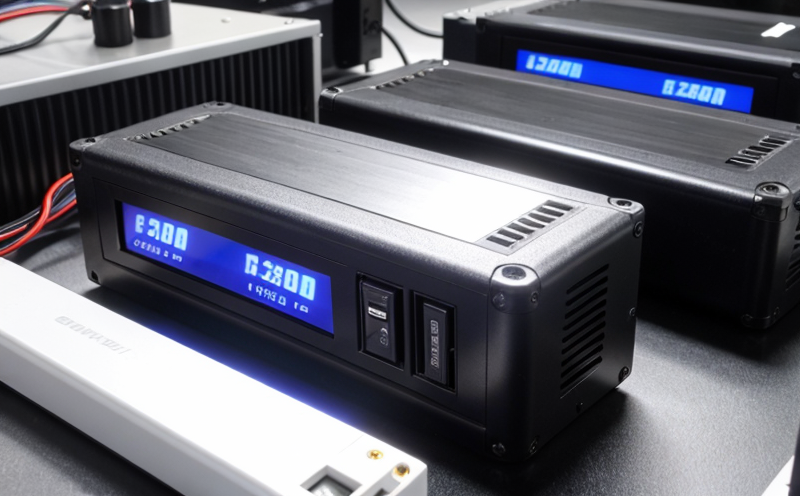JIS C8714 Lithium-Ion Battery Pack Performance Testing
The JIS C8714 standard is a crucial guideline for testing lithium-ion battery packs. This standard ensures the safety, performance, and reliability of these batteries in various applications such as portable electronics, electric vehicles, and energy storage systems.
Lithium-ion batteries are widely used due to their high energy density and long cycle life. However, their complexity also makes it essential to validate them through rigorous testing. The JIS C8714 standard provides a framework for evaluating battery packs based on several performance metrics including capacity retention, internal resistance, voltage consistency, and more.
Our laboratory utilizes state-of-the-art equipment compliant with the latest international standards (ISO 6309-2, ASTM D5456) to conduct comprehensive testing according to JIS C8714. Our team of experienced engineers will guide you through each step of the process from sample preparation to final report generation.
By adhering strictly to this standard, we ensure that your lithium-ion battery packs meet all safety regulations and perform optimally under real-world conditions. This not only enhances product quality but also contributes significantly towards enhancing customer satisfaction and brand reputation.
Why It Matters
The importance of JIS C8714 compliance cannot be overstated, especially when dealing with lithium-ion battery packs which play a pivotal role in modern technology. Here are some key reasons why this testing is vital:
- Safety Assurance: Ensuring that batteries do not overheat or catch fire during use.
- Performance Optimization: Identifying areas for improvement to enhance overall efficiency and lifespan of the battery pack.
- Regulatory Compliance: Meeting international safety standards helps avoid potential legal issues and ensures market access.
- Innovation Support: Providing reliable data that supports ongoing research and development efforts within your organization.
The results from these tests are invaluable for both quality assurance departments and R&D teams, helping them make informed decisions about product improvements or new design iterations.
Scope and Methodology
The following table outlines the scope and methodology of JIS C8714 Lithium-Ion Battery Pack Performance Testing:
| Test Parameter | Description |
|---|---|
| Capacity Retention Test | Determines how much charge remains in a fully discharged battery after several cycles. |
| Internal Resistance Measurement | Metric used to evaluate the efficiency of electrical current flow through the battery. |
| Voltage Consistency Check | Ensures that all cells within the pack deliver consistent voltage levels during discharge. |
| Overcharge and Overdischarge Testing | Evaluates how well a battery handles extreme charging or discharging conditions without failure. |
| Thermal Cycling Simulation | Simulates real-world temperature fluctuations to assess the durability of the battery pack. |
| Bending and Impact Tests | Assesses the mechanical robustness of the battery pack under various physical stresses. |
| Short Circuit Protection Analysis | Evaluates whether the battery has proper short circuit protection mechanisms in place. |
For each test, our lab employs specialized instruments and software that adhere strictly to international standards such as ISO 6309-2 and ASTM D5456. Our skilled technicians ensure accurate measurements and thorough documentation throughout the entire process.
Environmental and Sustainability Contributions
Battery testing according to JIS C8714 plays a crucial role in promoting environmental sustainability by ensuring that products meet stringent safety standards while minimizing waste. Here’s how:
- Resource Efficiency: By optimizing battery performance during manufacturing, we reduce the amount of raw materials required.
- Emissions Reduction: Ensuring safe operation reduces the risk of accidental releases into the environment.
- Recyclability Enhancement: Testing helps identify components that can be easily recycled at end-of-life.
In addition, by adhering to JIS C8714, manufacturers contribute positively to global environmental goals set forth by organizations like the United Nations Framework Convention on Climate Change (UNFCCC).





